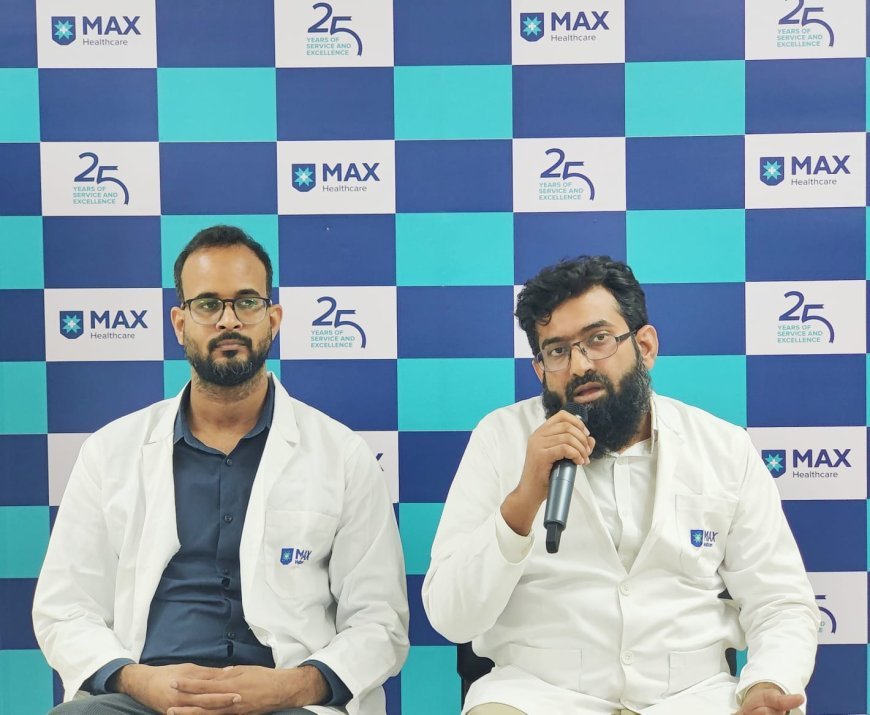Life-Saving Vascular Procedure at Max Hospital, Lucknow, Saves 55-Year-Old Man from Leg Amputation

The patient arrived at the hospital after struggling for several days with severe pain, weakness, black discoloration, and an inability to lift his left foot. By the time he reached the emergency department, his foot had turned cold and pale, signs that blood flow to the leg had been severely compromised. Evaluation and further test, including angiography, revealed a complete blockage in two major arteries of his left leg, one near the hip and another behind the knee, cutting off blood supply to the leg. Without immediate treatment, amputation was the only option.
The interventional radiology team at Max Hospital, Lucknow—Dr. Shahbaz Mohd Khan, Associate Director, and Dr. Swish Kumar Singh, Senior Consultant, after counseling the patient and the family, decided to perform an emergency minimally invasive vascular surgery to remove the blockage.
Commenting on the case, Dr. Shahbaz Mohd Khan, Associate Director- Interventional Radiology, Max Super Speciality Hospital, Lucknow, said, “This was a very critical case because the patient came to us with blocked arteries. In such situations, if treatment is delayed, the damage can become permanent, and amputation becomes the only option. Instead of open surgery, we opted for a minimally invasive approach that included catheter-directed thrombolysis, stenting, and mechanical thrombectomy. This allowed us to remove the blockage and restore circulation quickly. Blood flow returned immediately after the procedure, and he was able to lift his foot again.”
Commenting further on the case, Dr. Swish Kumar Singh, Senior Consultant – Endovascular & Interventional Radiology, Max Super Speciality Hospital, Lucknow, added, “In cases like acute limb ischemia, timely intervention can make a significant difference. By choosing a minimally invasive technique, we acted swiftly to clear the blockages and restore circulation without the need for open surgery. Such approaches not only help patients recover faster but also eliminate the need for amputation. There are 80% chances of amputation if treatment is delayed beyond 8hours in such cases of acute limb ischemia”.
The patient is now doing fine. This case highlights Max Hospital, Lucknow’s expertise in using modern, minimally invasive techniques for emergency cases, saving patients from life-altering outcomes.







